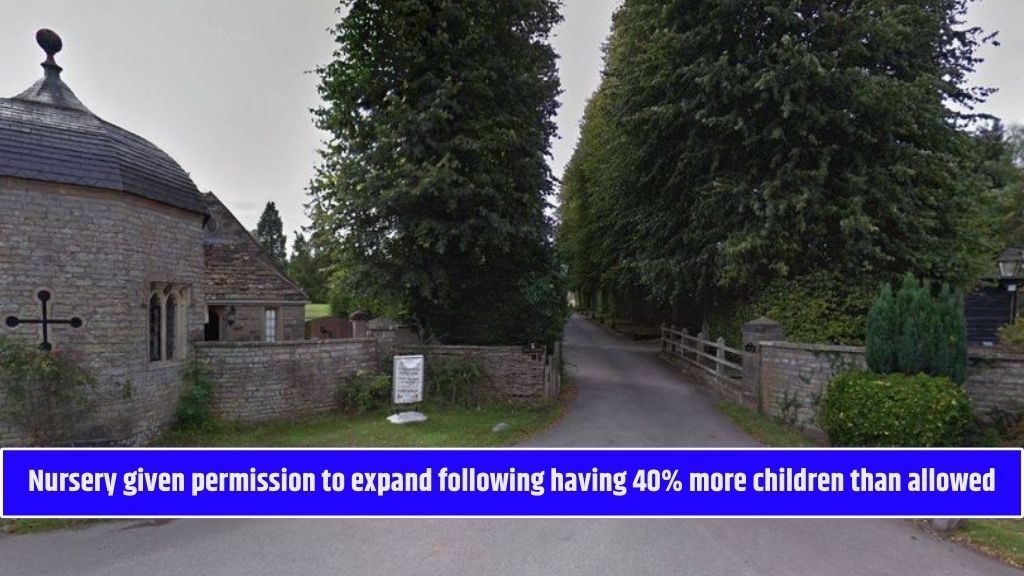A children’s nursery in the small hamlet of Siston Court, South Gloucestershire, has been granted permission to formally expand, despite breaching its planning conditions by exceeding its approved number of children.
Little Puddleducks Nursery, located within a Grade II-listed building* next to the historic Grade I-listed Siston Court, was originally permitted to care for 33 children when it was approved in 2017. However, for several years, it has been accommodating 46 children, leading to enforcement action by South Gloucestershire Council.
Planning Breach and Community Concerns
The nursery applied for retrospective planning permission to officially increase its capacity to 46 children and expand parking spaces, even though there were concerns about damage to tree roots in the area. Many local residents and the council’s conservation officer opposed the application, arguing that it would further harm the historic environment.
During a development management committee meeting on Thursday, February 20, local resident Dominic Trotman-Dickenson expressed his frustration, stating:
“The parents all arrive between 8:30 AM and 9:00 AM through a single access gate. It is chaos.”
Concerns were also raised about parking issues, potential overcrowding, and the impact on the heritage site.
Nursery Defends Expansion Request
Little Puddleducks managing director, Sacha Hallard, defended the expansion, stating that the drop-off and pick-up system was efficient, with parents spending an average of just three minutes on-site. She highlighted that drop-offs occurred between 8:00 AM and 9:30 AM, while pick-ups were staggered between 4:00 PM and 6:00 PM.
Hallard also emphasized the growing demand for early-years childcare in the area, citing that 5,000 new homes were planned within a three-mile radius.
“If permission is not granted, this setting will not be viable to continue to provide an early-years service to the community. This will leave 102 local families without childcare and 22 staff members without jobs,” she explained.
Divided Opinions Among Councillors
The proposal sparked heated debates among councillors. Cllr June Bamford (Conservative, Hanham) strongly opposed the application, criticizing the nursery’s violation of planning conditions and questioning if they would continue to increase numbers beyond 46 children.
“The harm outweighs the benefits. They’ve gone up to 46 children in breach of planning conditions – what is to stop them from going up to 60? I’m totally disgusted.”
Similarly, Cllr Paul Hughes (Conservative, Bitton & Oldland Common) expressed concerns about the mess created by the parking area, comparing it to a farmyard churned up by a tractor.
However, some councillors, including Cllr John Bradbury (Labour, Bradley Stoke South), were persuaded by the need for childcare spaces in the area. A report presented to the committee highlighted that the Boyd Valley ward had a shortage of 53 nursery places for children under two years old, and the local authority had a legal duty to ensure enough free nursery spaces.
Council Approves Expansion with Conditions
Despite opposition, councillors voted 7-2 in favor of approving the nursery’s expansion, agreeing that the public benefit outweighed the potential harm.
Cllr Tony Williams (Lib Dem, Severn Vale) acknowledged that while he disliked retrospective planning applications, the nursery already had existing permission, meaning there was little the council could do to reverse the decision.
To address concerns about the environmental impact, a new planning condition was added to protect tree roots from further damage.
The approval of Little Puddleducks Nursery’s expansion has sparked controversy, balancing the need for childcare spaces against concerns about heritage preservation and planning violations. While local residents and some councillors opposed the move, the shortage of nursery places in South Gloucestershire ultimately influenced the decision.
The case highlights the ongoing challenges between development, heritage conservation, and community needs, raising questions about how similar planning disputes will be handled in the future.
| Visit for More News and Updates | WSOA NEWS |
